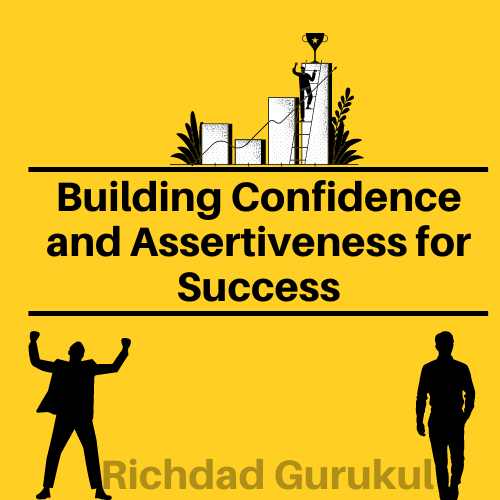Leadership and Management Skills for Success
Confidence and assertiveness are two important traits that can greatly contribute to an individual’s success. Building these traits may take time and effort, but with the right mindset and techniques, anyone can develop the confidence and assertiveness necessary to achieve their goals.
Firstly, it’s important to understand that confidence and assertiveness are not innate qualities that some people are simply born with. They are skills that can be learned and honed over time. To start building confidence, it’s important to identify and acknowledge your strengths and weaknesses. Take time to reflect on your achievements and accomplishments, no matter how small they may seem. Celebrating your successes, however small they may be, can go a long way in boosting your confidence.
Another way to build confidence is through practicing self-care. This can involve physical exercise, getting enough sleep, and maintaining a healthy diet. When you take care of your body and mind, you will naturally feel more confident and energized.
Assertiveness, on the other hand, involves the ability to stand up for yourself and your beliefs in a respectful and effective way. It’s important to note that assertiveness is not about being aggressive or rude. Rather, it’s about communicating your needs and boundaries clearly and confidently.
One way to practice assertiveness is by setting boundaries. This can involve saying “no” when you feel overwhelmed or uncomfortable, or speaking up when someone is crossing a line. It’s important to communicate your boundaries in a respectful and assertive manner, while also being open to compromise and negotiation.
Another important aspect of assertiveness is effective communication. This involves not only expressing your own needs and boundaries, but also actively listening to others and seeking to understand their perspective. When you communicate effectively, you are more likely to be understood and respected by others, which can boost your confidence and assertiveness.
Finally, it’s important to recognize that building confidence and assertiveness is a continuous process. It’s important to set realistic goals and track your progress over time. Celebrate small successes along the way and don’t be afraid to seek support from others when needed.
In conclusion, building confidence and assertiveness are key factors in achieving success. By acknowledging your strengths, practicing self-care, setting boundaries, and communicating effectively, you can develop these traits and reach your goals with greater ease and confidence. Remember, building confidence and assertiveness is a continuous process, but with perseverance and determination, you can achieve success in all aspects of your life.

